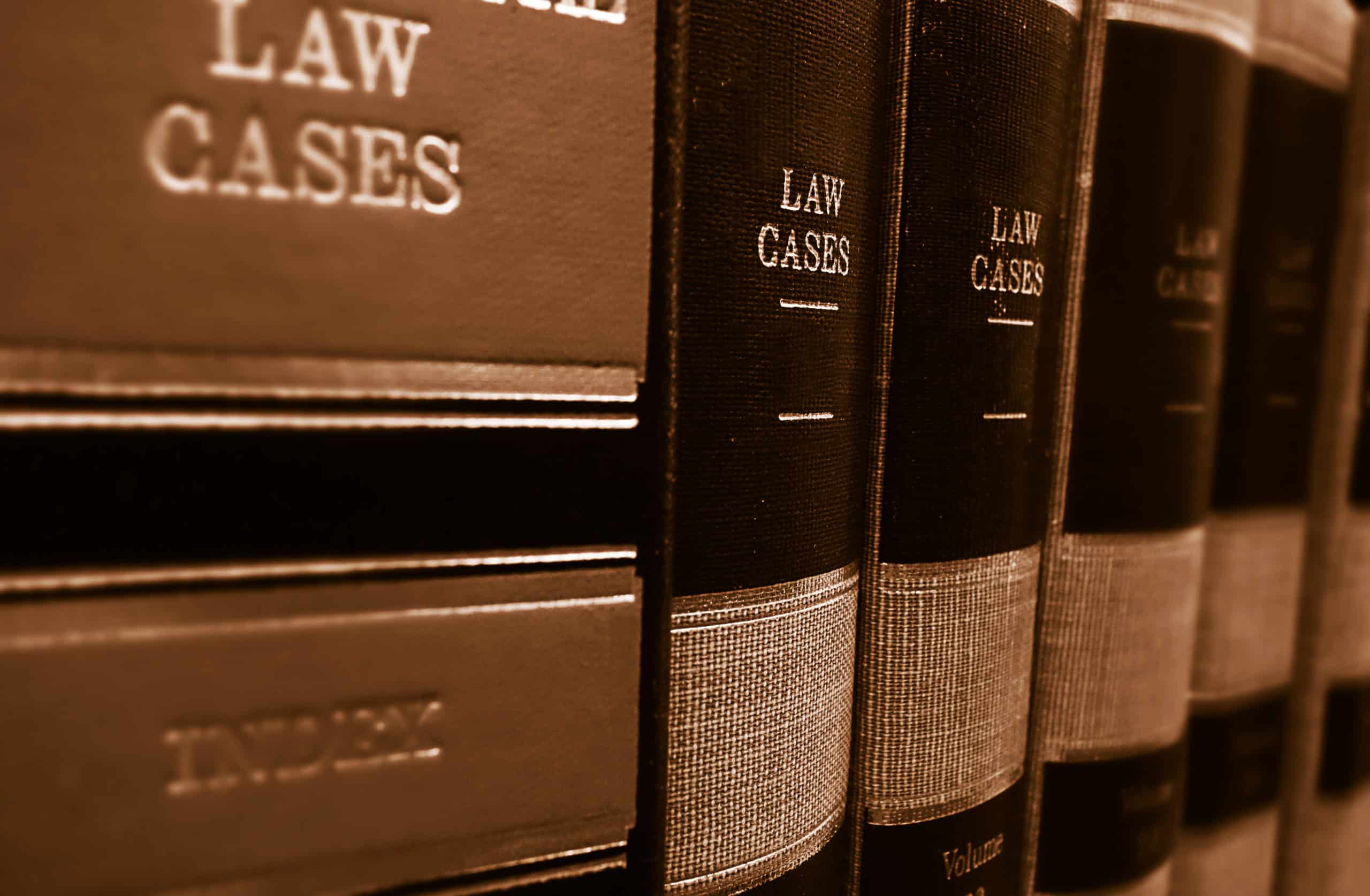24 Legal Terms and Definitions for Personal Injury Law

There is a lot of jargon in the legal world, and this can be especially confusing when it comes to cases involving personal injury. If you have ever been involved in a personal injury case, chances are that the lawyer has used legalese terms to communicate with you. So what does all of this legal jargon mean?
In order to better understand these words and phrases, we’ve provided a list of common ones along with their definitions. From pain and suffering damages to contributory negligence, each one will be explained for your convenience so that you can fully grasp the complexity behind them.
This informative blog post should help those who were previously confused by any unfamiliar legal terms relating to personal injury cases. We hope that you feel more confident about understanding the process from start to finish.
What is meant by Personal Injury
Personal injury refers to any type of harm that occurs on another person’s body or property without their consent. Some examples include car accidents, slip and falls, truck accidents, pedestrian accidents, bicycle accidents, and many others.
What is meant by a Personal Injury Lawsuit
A personal injury lawsuit is a civil case that is filed in a Maryland court by a plaintiff in order to recover compensation from the defendant. In these cases, plaintiffs are seeking monetary damages for their injuries.
What is meant by a Plaintiff
A plaintiff refers to the injured person who files the lawsuit against another party (i.e. the defendant) after being injured due to his or her negligence.
What is it meant by Civil Action
A civil action is a legal case that is filed by a private citizen against another person, organization, or business. Civil actions are brought in Maryland civil courts, where the person who filed the lawsuit seeks monetary damages only against another person, business, or local government.
What is meant by Compensatory Damages
Compensatory Damages are a form of financial compensation for someone who was injured because of another party’s negligence. In other words, money that is awarded in a case as a result of the defendant’s negligent actions in order to compensate for the injured party’s losses.
What is meant by Liability
Liability refers to a person, business, or local government’s legal responsibility for causing harm or loss to another person, and holding them accountable for their actions. If one party is found liable, it means they are legally responsible for the damages caused to another person and must pay monetary compensation.
What it is meant by Negligence
Negligence refers to a person’s failure to act as expected (i.e. the required standard of care) or with reasonable care. Negligence is a type of tort law where one party breaches a duty of care owed to another party by not acting reasonably in regard to safety issues.
What is meant by the 4 elements of a Personal Injury Claim
The 4 elements are:
- Duty of Care: the defendant was required to act what the relevant standard of care requires, or as a reasonable person would act under similar circumstances.
- Breach of duty: the defendant’s failure to meet the standard of care due to negligence, which resulted in harm or loss sustained by another party (i.e., plaintiff).
- Causation: the plaintiff’s physical injury and losses were actually caused by the defendant’s breach of their duty of care (I.e. negligence).
- Damages: the plaintiff’s suffered harm and losses, which could include bodily injuries, medical bills, future anticipated medical bills, loss of income, future anticipated loss of income, property damage, emotional distress, and mental anguish, death, funeral expenses, and burial expenses
What is meant by Burden of Proof
Burden of Proof refers to the responsibility or duty that falls upon a party in litigation. This obligation can be met by providing sufficient evidence, usually through eyewitness accounts and other forms of documentation to support their claims. In personal injury cases, the burden of proof always rests with the plaintiff.
What is meant by Litigation
Litigation refers to the process of taking a case to court or filing a case in court. It is the formal process of resolving disputes between parties and enforcing their rights under civil law; this includes filing an initial complaint, responding to claims made by opposing parties (denials), requesting a jury trial for more complex cases, and generally conducting discovery.
What is meant by Discovery
Discovery is a formal process where the parties involved in a lawsuit exchange information before trial. This includes exchanging evidence, written questions or requests for answers under oath (interrogatories), and depositions of witnesses who are questioned by each side’s lawyers.
What is a Deposition
A deposition is a formal, sworn “Q&A” session during which a witness or party to the lawsuit is questioned by the opponent’s attorney, under oath. The person being deposed may be called upon to testify about anything related to his knowledge of relevant facts and information, including their own opinions on those matters (this means that they can give evidence as an expert). Depositions are taken before trial to avoid surprises.
Also, upon request, the person being deposed is expected to bring any relevant documents or other evidence with them, and the opposing party may also ask questions about this material as well.
What is meant by Admissible Evidence
Admissible evidence refers to any documentation or testimony that can be brought into a court hearing or trial that is relevant enough to be presented to the judge and jury.
What is meant by Respondeat Superior
Respondeat superior is Latin for “answerable for”. In law, it means that an employer can be held liable for the actions of its employees.
What is meant by Wrongful Death
Wrongful death is a type of tort where someone dies because of another person’s negligence. There are different types of wrongful death cases, including negligence, medical malpractice and products liability.
What is meant by Pain and suffering
Pain and Suffering is a form of damages awarded to an individual who has been injured in a car accident or other personal injury case. This money is meant to compensate for things that are not able to be measured with numbers, such as emotional distress, physical pain and mental anguish.
What is meant by Tort Law
Tort law is a branch of the law that deals with civil wrongs. It is made to protect people from being harmed by others in some way. This includes protecting against both intentional and negligent harm from others. A personal injury lawyer practices tort law when pursuing a case against car accident injuries for their client.
What is meant by Intentional tort
Intentional tort is a wrongful act that is committed in an intentional way, either by acting or failing to act when there was a duty of care owed to another person who suffered harm as a result. Examples of intentional torts are assault, battery, trespass, false imprisonment, and intentional infliction of emotional distress.
What is meant by Comparative Negligence
Comparative Negligence is a judicial doctrine that is used in most states when determining the amount of damages a party should pay for injury or death. In these cases, each defendant is assigned a percentage of liability and then it’s up to the jury to decide how much they need to award the plaintiff. Maryland does not use comparative negligence. Maryland uses the doctrine of contributory negligence
What is Contributory Negligence
Contributory negligence is a legal term for when a person is partially at fault in an accident. For example, if someone walks into traffic and gets hit by a car because the pedestrian was not paying attention to where he or she was going, that person would likely be found partly responsible for his injuries due to contributory negligence. In Maryland what this would mean is that if you were found partially at fault, you will not win your case; you will be barred from recovering any damages.
What is meant by Proximate Cause.
Proximate cause is a legal term that means the defendant’s action was directly responsible for causing harm to another person. This is a necessary element in proving negligence, which must be proved before damages are awarded. For example, if someone gets hit by a car because they were jaywalking and it turns out the driver of the car had fallen asleep at the wheel, this would likely be considered the proximate cause of this person’s injuries.
What is meant by Contingency Fee
Contingency fee means that an attorney will handle your case for a certain percentage of the amount you win. If you do not receive compensation, then neither does the lawyer.
What is meant by Punitive Damages
Punitive damages are awarded to plaintiffs in civil cases where the defendant’s conduct was particularly egregious (i.e., a drunk driver who killed someone). These damages are meant as a punishment for defendants, and they can be very large sums of money that would never be awarded under normal circumstances.
What is meant by the Statute of Limitations
In Maryland, the statute of limitations is three years, starting from the date of injury. If you do not file your claim in a Maryland court within this time period, the claim will be barred and you cannot bring any legal action in a Maryland court forward for compensation.
Contact a Baltimore Personal Injury Attorney Today
If you were injured in a car accident or other type of personal injury at no fault of your own, it is a good idea to contact a personal injury attorney in your area who specializes in helping individuals with injuries due to the negligence of another.
If you were injured in the Baltimore area, Leppler Injury Law is here to answer your questions. John is a Baltimore personal injury attorney who has helped countless individuals with their cases. Give us a call today at (443) 955-1989 for your FREE Consultation.
